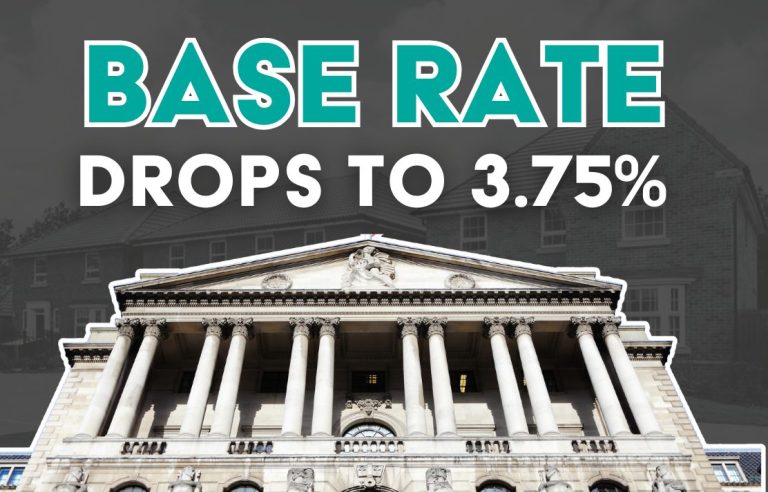Securing a mortgage offer is a critical milestone on your journey to buying a home. If you’re searching for how to get a mortgage offer, this guide will walk you through each stage from preparing your finances to receiving the formal approval.
In this blog, we’ll explain the difference between an Agreement in Principle (AIP) and a full offer, what documents you’ll need, how lenders assess your application, and how to avoid delays.
What Is a Mortgage Offer?
A mortgage offer is a lender’s formal confirmation that they will lend you a specific amount to buy a property. It follows a full application, identity verification, affordability checks, and a valuation of the home you intend to purchase. This offer is legally binding for a set period, typically three to six months, giving you and your conveyancer the green light to exchange contracts and complete your purchase.
Start With a Mortgage Agreement in Principle (AIP)
Before house hunting or making an offer, most buyers apply for an Agreement in Principle (AIP) also known as a Decision in Principle. It’s a preliminary indication of how much you might borrow, based on information such as:
- Your income (including salary or self-employed earnings)
- Monthly outgoings (bills, loans, credit cards)
- Credit profile (using a soft credit check that doesn’t impact your score)
An AIP gives you confidence in your budget and shows estate agents or sellers that you’re a serious buyer. While it’s not a guarantee of funds, it’s a helpful step that precedes a full mortgage offer.
Prepare Your Documents Early
When you’re ready to apply formally, collecting documentation in advance makes the process smoother. Lenders typically request:
- Identity & Address Proof
- Passport or driving licence
- Recent utility or council tax bill
- Income Evidence
- If employed: last 3 to 6 months of payslips, most recent P60, and bank statements showing salary payments
- If self-employed: two to three years of SA302 tax summaries or certified accounts, plus contract evidence or dividend statements where applicable
- Financial Commitments
- Bank statements covering the last six months
- Details of existing loans, credit cards, or other credit agreements
Having these documents ready speeds up underwriting and reduces back-and-forth with your lender.
Choosing the Right Mortgage Type
Lenders offer various mortgage products, and selecting the correct one for your situation is vital. Common types include:
Fixed-rate mortgages: Your interest rate is locked for a set period, typically between two and five years
Tracker or variable rates: The rate moves in line with Bank of England Base Rate changes
Discounted variable: A fixed discount off the lender’s standard variable rate for an introductory period
Key factors to consider:
- Interest rate type and length
- Arrangement or product fees
- Early repayment charges (ERCs)
- Flexibility to make overpayments or port the deal if you move later
A mortgage adviser can help you weigh up these factors and compare deals across lenders.
Full Application, Valuation & Underwriting
Once you’ve accepted an offer on a property and gathered your documents, you’ll need to submit a full mortgage application. This includes:
Property Valuation
A lender-appointed surveyor will check the property’s value and condition. While this is not a detailed homebuyer’s report, it confirms the property is appropriate security for the loan.
Underwriting Checks
At the same time, the lender underwrites your application by:
- Verifying income and affordability
- Reviewing credit history
- Confirming property details and legal ownership
If everything aligns, the lender issues a formal mortgage offer, usually within one to two weeks of valuation.
What Happens After You Receive the Mortgage Offer?
Receiving the mortgage offer is a major milestone. Here’s what to do next:
- Read the offer carefully – Check loan amount, interest rate, term, fees, and expiry date
- Accept the offer – You’ll usually sign and return a copy to your lender
- Proceed with conveyancing – Your solicitor will use the offer to exchange contracts and finalise the purchase
- Complete the purchase – Once contracts are exchanged and all conditions are fulfilled, the lender sends the funds to complete, and you collect the keys
Avoiding Common Delays
Problems during the mortgage process often relate to:
- Delays in property valuation or not granting surveyor access
- Missing documents, especially income evidence or bank statements
- Credit score changes due to opening new accounts or missed payments
- Employment or financial changes during the application process
To minimise delays, be proactive: double-check documents, remain in sweats-free employment, and avoid major credit changes once your application is underway.
Tips to Strengthen Your Application
Strengthen your mortgage application and improve your chances of a smooth offer:
- Keep your credit in good order – only one or two soft searches, register your current address, and reduce debt balances
- Increase your deposit – a larger deposit improves loan-to-value (LTV) ratios, often leading to better rates
- Stay stable in your job – lenders favour at least three to six months in your current role
- Consider a broker – they can access deals available only through brokers and tailor advice to your circumstances
- Stick to your application details – making changes mid-way (e.g. new loans, job changes) can prompt re-assessment
Frequently Asked Questions
Do I need a mortgage offer before making an offer on a home?
No, but an AIP helps show sellers you’re serious. A full mortgage offer is issued later, once a valuation and full application are complete.
What are early repayment charges (ERCs)?
These are fees charged if you pay off a fixed or discounted mortgage early. Check your terms, especially if your mortgage ends before plans to move or overpay.
How long is a mortgage offer valid?
Most offers last three to six months. Always check exact duration, some lenders count from issue date, others from valuation date.
Can the lender withdraw the offer?
Yes, if your circumstances change significantly such as job loss, default on payments, or a drop in the property value.
Applying for and preparing for a mortgage offer doesn’t need to be overwhelming. The key steps are:
Secure a mortgage in principle, assemble required documents, choose an appropriate mortgage type, and allow time for property valuation and underwriting.
With proper planning and possibly expert help, you can avoid delays and confidently move toward your home purchase.
At UK Mortgage Centre, we’re here to help you make informed decisions about your mortgage. Our experts can guide you through the process, ensuring you find the best solution tailored to your needs.
Call us on 01925 573328
Email: hello@ukmc.co.uk
Or book your own appointment to speak with one of our friendly advisers.
Let us assist you in making your next move a smooth and successful one.
Disclaimer
UK Mortgage Centre is a trading style of Refresh Mortgage Network Limited. Refresh Mortgage Network Limited is authorised and regulated by the Financial Conduct Authority. FRN – 826982. Registered in England & Wales: 11614569. As a mortgage is secured against your home, it could be repossessed if you do not keep up the mortgage repayments. The Financial Conduct Authority does not regulate some forms of buy-to-let mortgages. The Financial Conduct Authority does not regulate will writing and taxation and trust advice.







